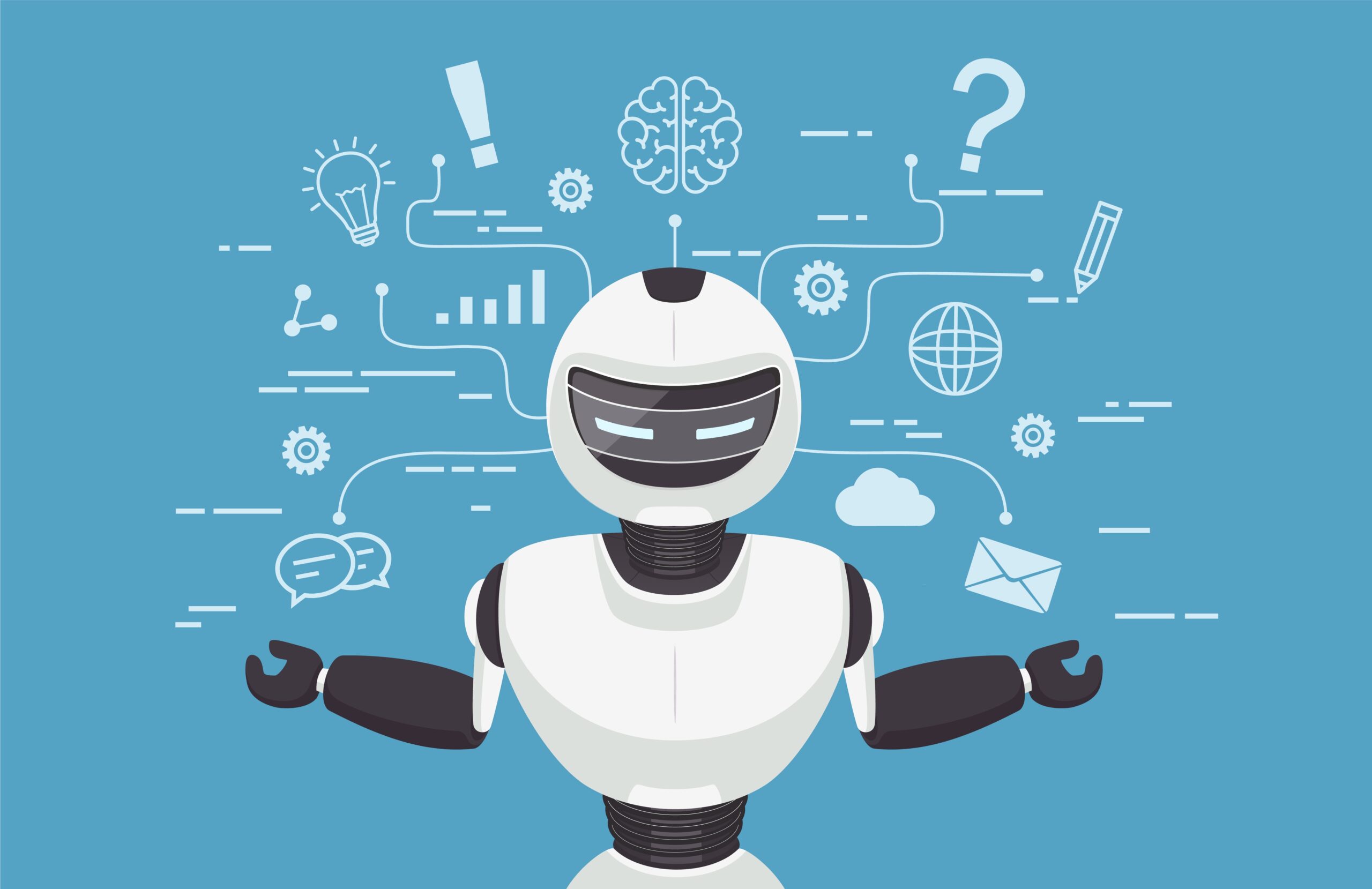
Introduction
Understanding AI in Marketing
Artificial intelligence (AI) has emerged as a marketing game-changer in today’s fast-paced digital landscape. By leveraging vast data, AI helps businesses analyze consumer behaviour, predict trends, and tailor marketing efforts for optimal engagement. Imagine you’re a small business owner: AI tools can help you understand your customers’ preferences, which products they’re most likely to buy, or the best times to reach out to them. The insights provided can be both surprising and invaluable.
Benefits of AI Strategies in Marketing
The implementation of AI strategies in marketing offers a wide array of benefits, making it an essential element for brands looking to thrive:
- Enhanced Efficiency: Automating repetitive tasks saves time and allows marketers to focus on creative strategies.
- Better Targeting: AI analyzes buyer personas and demographics to craft personalized messages.
- Improved Conversion Rates: Businesses can optimize their sales funnels by understanding customer journeys.
AI simplifies marketing processes and enhances overall customer satisfaction through more relevant and engaging interactions.
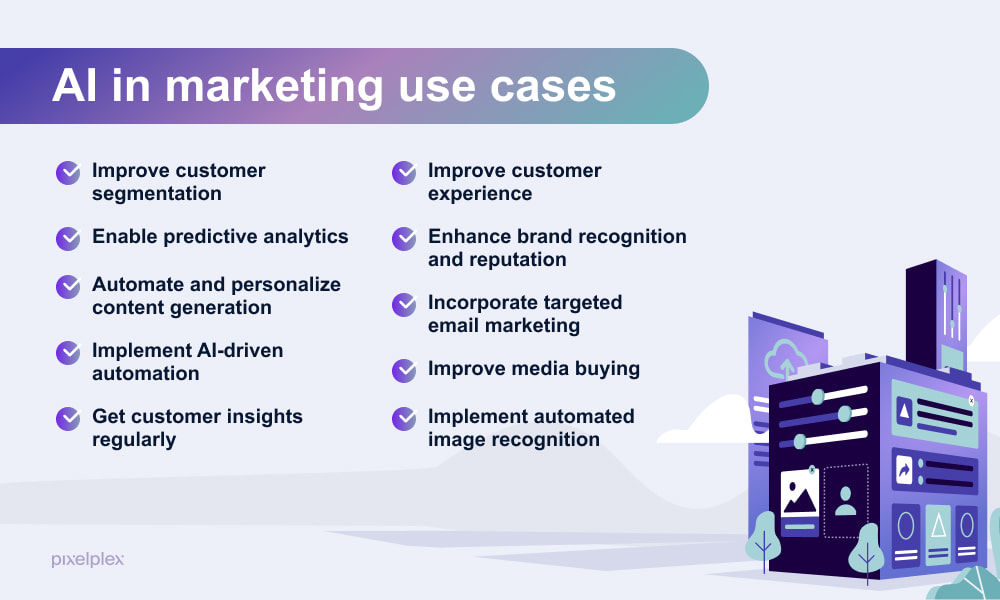
Importance of AI in Marketing
Data-driven Decision Making
As marketers navigate a sea of consumer data, the importance of data-driven decision-making cannot be overstated. AI synthesizes vast data to provide actionable insights, helping marketers make informed choices. For instance, a clothing retailer can analyze purchase patterns and social media interactions to tailor product offerings. Instead of guessing popular styles, they can rely on data to guide inventory decisions.
- Enhanced Accuracy: AI minimizes human error in data analysis.
- Trend Identification: Quickly recognize emerging trends and adapt strategies accordingly.
Personalization and Customer Insights
Personalization has become a cornerstone of effective marketing, and AI plays a pivotal role. By analyzing customer behavior, preferences, and feedback, AI provides insights that allow businesses to create tailored experiences. Picture a travel agency that uses AI to analyze previous bookings and user preferences; it can offer personalized travel packages to its clients.
- Smoother Interactions: Personalized content leads to greater customer engagement.
- Increased Loyalty: Understanding and catering to individual preferences fosters brand loyalty.
This combination of data-driven strategies and personalized experiences ensures that businesses meet and exceed customer expectations, ultimately driving growth in a competitive landscape.
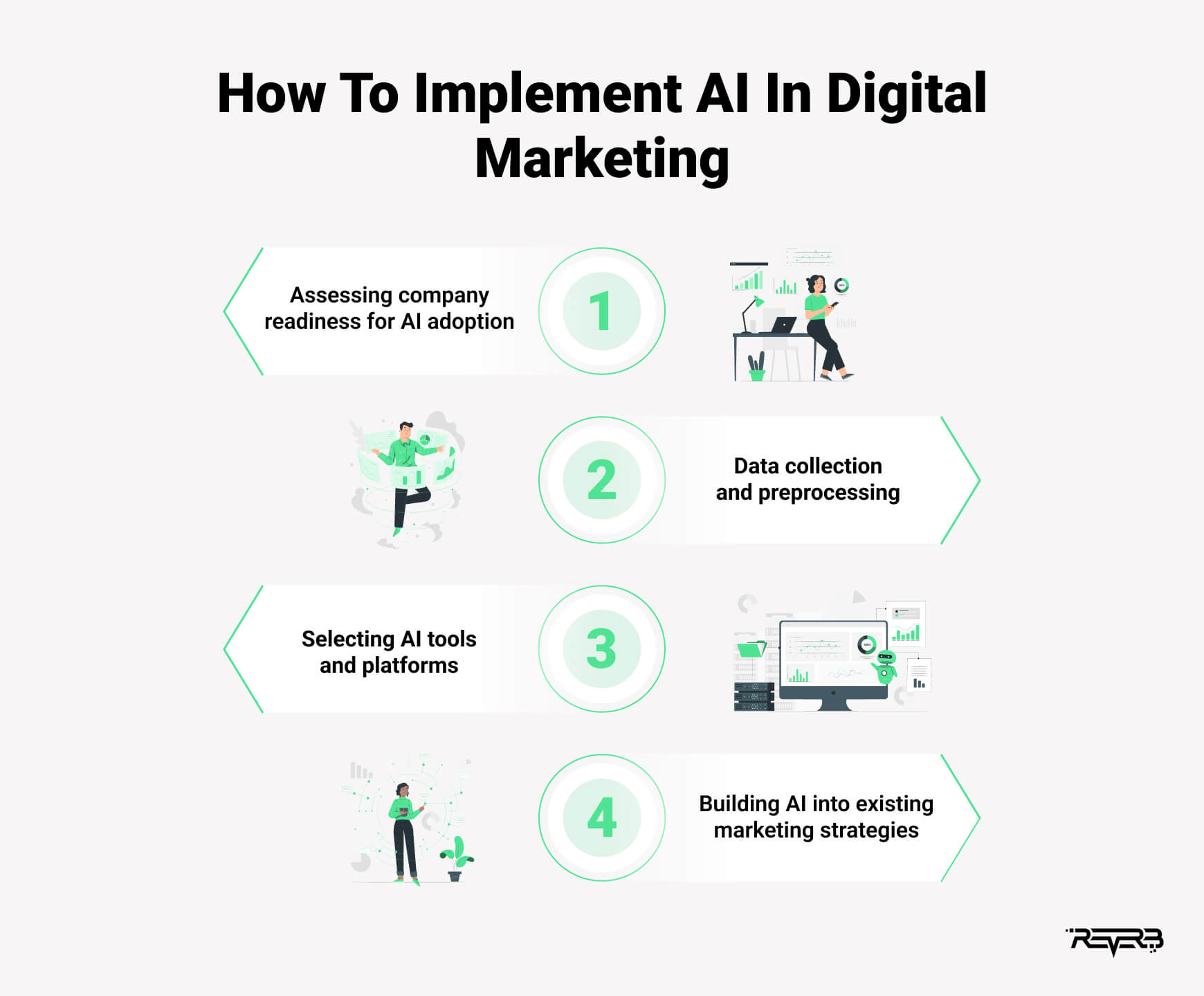
Implementing AI Technologies
AI-Powered Analytics Tools
To harness the full potential of AI in marketing, businesses can employ AI-powered analytics tools that provide deep insights into customer behavior and market trends. For instance, consider a beverage company that utilizes AI analytics to gauge customer reactions to different flavors via social media sentiment analysis. By interpreting real-time data, marketing teams can quickly adapt their campaigns based on consumer preferences.
- Predictive Analytics: Anticipate future customer behavior by analyzing historical data.
- Comprehensive Reporting: Generate visual reports that highlight key performance indicators effectively.
Automation in Marketing Campaigns
Alongside analytics, automation is a critical component of modern marketing strategies. AI enables the automation of repetitive tasks, freeing marketers to focus on strategy and creativity. For example, a nonprofit organization can automate its email campaigns, sending personalized messages based on donors’ previous interactions.
- Efficiency: Schedule social media posts and emails without manual intervention.
- Consistency: Maintain a steady flow of communication with customers at optimal times.
By implementing these AI technologies, marketers can streamline their processes and create more effective campaigns, increasing customer satisfaction and ROI.
AI Chatbots and Customer Engagement
Enhancing Customer Experience
AI chatbots have revolutionized customer engagement by delivering instant support around the clock. Imagine browsing an online store late at night, and a question arises about sizing. A chatbot can provide immediate assistance, enhancing your shopping experience. This level of accessibility leads to higher customer satisfaction and encourages repeat visits.
- Instant Responses: Customers receive 24/7 support without the wait time associated with human agents.
- Tailored Interactions: Chatbots can analyze past interactions to offer personalized recommendations based on individual preferences.
Improving Customer Service Efficiency
Beyond enhancing the customer experience, AI chatbots significantly boost service efficiency. Handling repetitive inquiries allows human agents to focus on more complex issues. For instance, an e-commerce platform may see a 30% reduction in response times due to chatbot interventions, leading to quicker customer resolutions.
- Cost-effectiveness: Reducing the manpower needed for basic queries leads to substantial cost savings.
- Scalability: Chatbots can simultaneously assist multiple customers, ensuring businesses can scale their support without sacrificing quality.
Integrating AI chatbots improves customer experiences and streamlines service operations, positioning businesses for long-term success in a competitive market.

AI in Content Marketing
Content Creation and Optimization
In the realm of content marketing, AI stands as an invaluable ally in both creation and optimization. Content creators can use AI tools like natural language processing to generate blog ideas or draft articles. For instance, a marketing team might leverage AI to compile data-driven subjects that appeal to their audience. This not only saves time but also enhances creativity.
- SEO Enhancement: AI tools can offer keyword suggestions and analyze competitors to optimize content visibility.
- Tailored Messaging: By understanding audience preferences, AI can assist in crafting targeted content that resonates effectively.
Content Performance Analysis with AI
After publishing content, understanding its performance is crucial. AI helps marketers analyze engagement metrics and audience behavior patterns in real-time. Picture a lifestyle brand using AI to assess which articles drive the most traffic. They can swiftly pivot their strategy based on these insights.
- Comprehensive Metrics: Track likes, shares, and comments to gauge engagement.
- Predictive Insights: Leverage data to forecast future content trends, ensuring relevant topics are prioritized.
Embracing AI in content marketing streamlines creation and optimizes ongoing strategies, ultimately leading to higher engagement and better ROI.
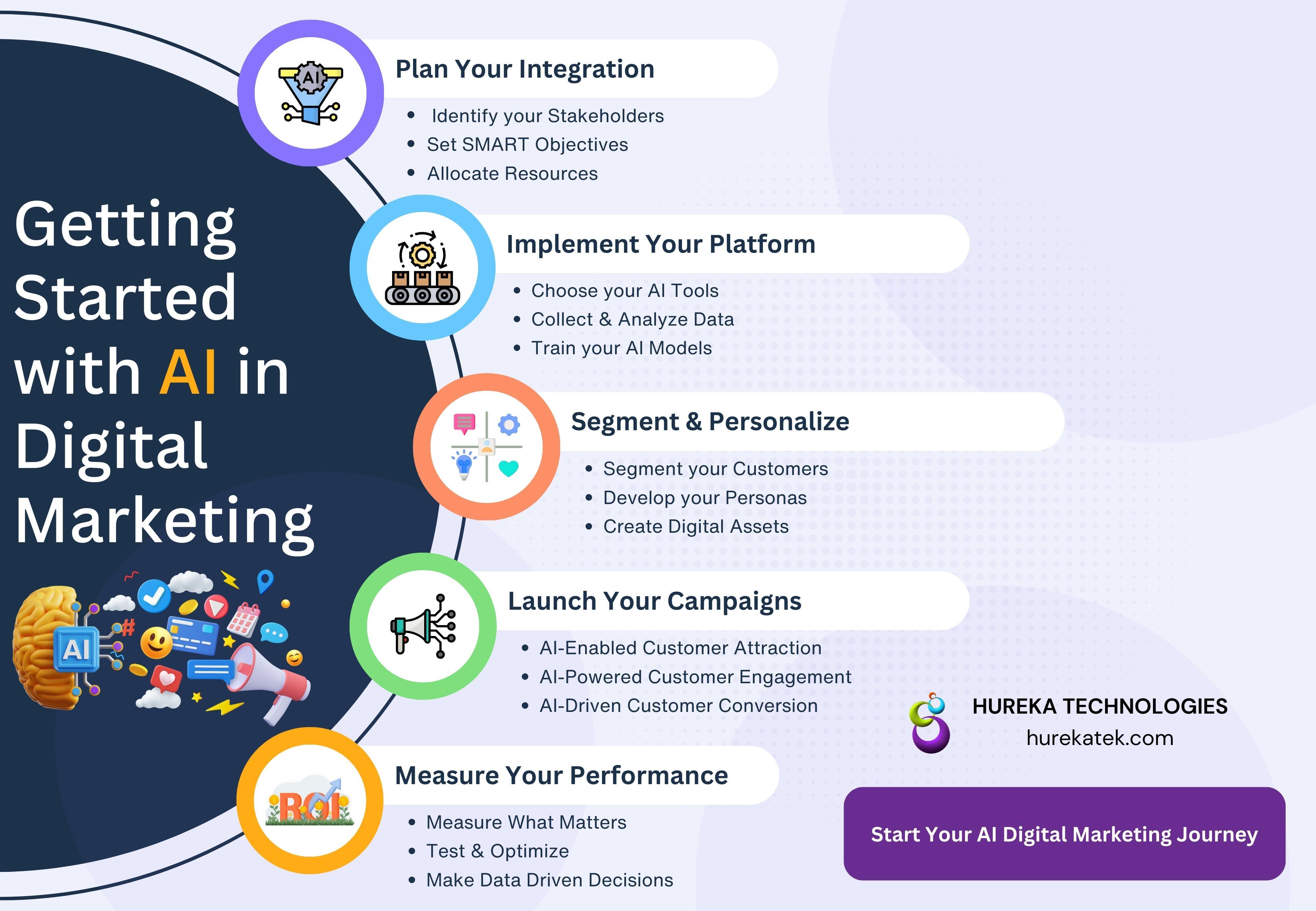
AI for Targeted Advertising
Precision Targeting Strategies
In the ever-evolving world of digital marketing, AI has emerged as a powerful tool for precision targeting strategies. By analyzing a myriad of data points—from browsing history to demographic information—AI helps marketers identify and target specific audience segments more effectively. For example, a sports brand can utilize AI to pinpoint fitness enthusiasts based on their online behavior, ensuring their advertisements reach the right consumers.
- Enhanced Audience Segmentation: Break down audiences into micro-segments for targeted campaigns.
- Real-time Adjustments: Modify targeting parameters in real time based on engagement data and performance metrics.
Dynamic Ad Personalization
Once targets are identified, AI takes advertising further with dynamic ad personalization. This means that ads can change based on user behavior or preferences. Imagine receiving an ad for hiking boots while browsing a travel site. This ad’s technology knows your recent searches and interests, creating a more relevant experience.
- Behavioral Adaptation: Ads evolve based on how users interact with them, leading to higher conversion rates.
- Custom Recommendations: Use AI to suggest products that suit individual preferences, ultimately boosting engagement.
By leveraging precision targeting strategies and dynamic ad personalization, businesses can create highly effective marketing campaigns that resonate with their audience and drive results.
Measuring AI Marketing Success
Key Performance Indicators (KPIs)
To truly understand the impact of AI in marketing, businesses must establish clear Key Performance Indicators (KPIs) that gauge success. These metrics provide insights into how effectively AI strategies are delivering results. For instance, retail companies may track conversion rates, customer acquisition costs, and overall engagement levels.
- Conversion Rate: Assess how many users take the desired action after interacting with an AI-driven campaign.
- Customer Lifetime Value (CLV): Evaluate the long-term value generated from customers acquired through AI initiatives.
AI Metrics and ROI Analysis
Beyond traditional KPIs, AI-specific metrics are crucial in analyzing return on investment (ROI). For instance, tracking performance indicators like predictive accuracy or lead scoring efficiency helps marketers refine their strategies. Imagine a tech company evaluating the effectiveness of an AI-powered ad campaign; measuring the increase in relevant lead conversions against costs can validate the investment.
- Attribution Analysis: Understand which channels and tactics contributed most to conversions.
- Cost per Engagement: Calculate how much is spent to generate interactions through AI-driven campaigns.
By focusing on these KPIs and AI-specific metrics, businesses can better assess the effectiveness of their marketing efforts and optimize strategies for greater returns.
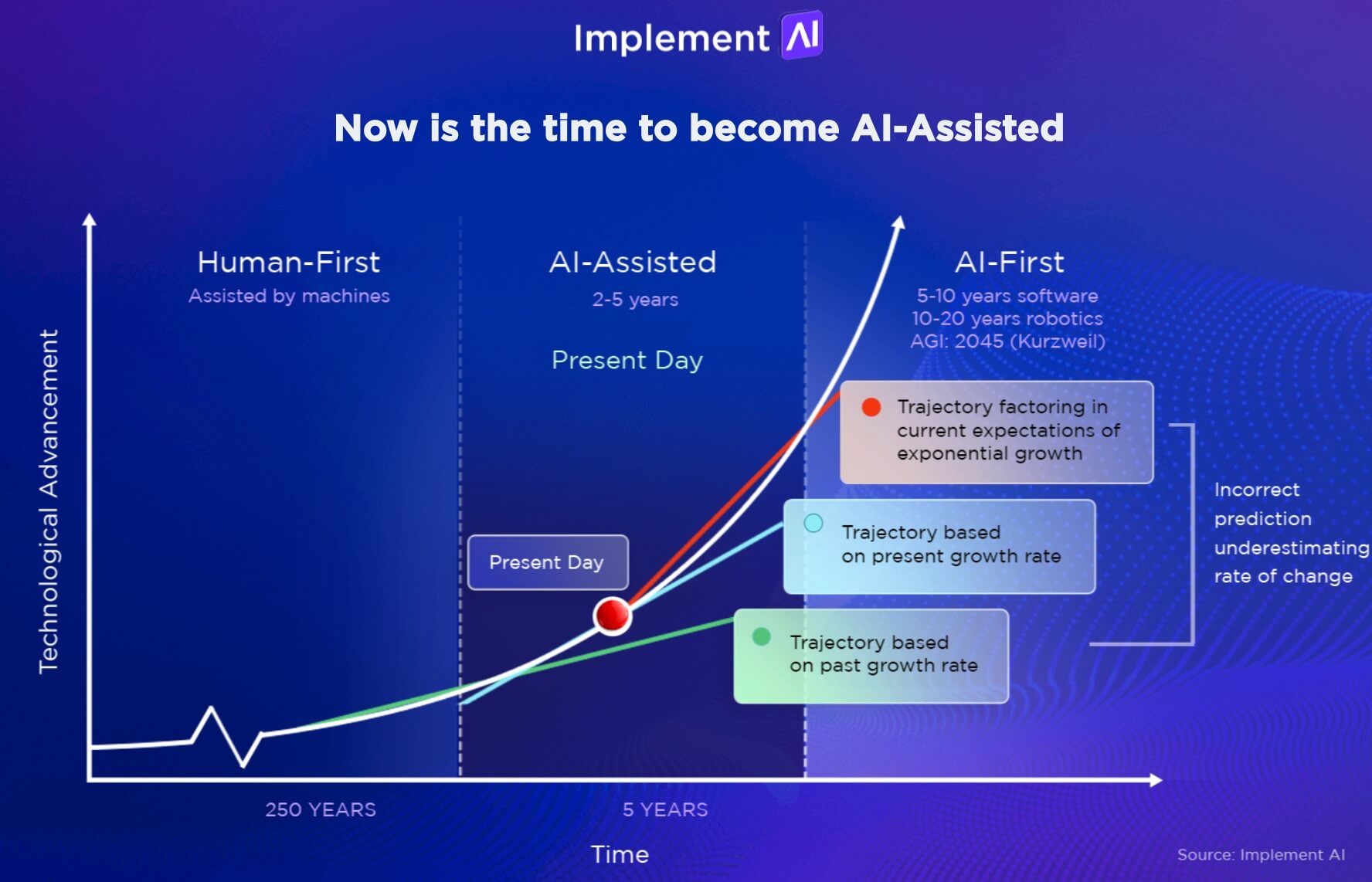
Challenges and Future Trends in AI Marketing
Data Privacy and Ethics Concerns
As AI shapes the marketing landscape, data privacy and ethical concerns loom. With vast consumer data being collected and analyzed, companies must navigate the thin line between personalization and privacy invasion. For example, imagine receiving highly targeted ads that feel unsettling because they reflect your recent searches. This discomfort stems from concerns about how much companies know.
- Regulatory Compliance: Following laws like GDPR and CCPA is crucial to maintaining consumer trust.
- Transparency: Brands should be open about data collection practices to the consumers, building trust and credibility.
Emerging AI Technologies in Marketing
Looking ahead, several emerging AI technologies promise to reshape marketing strategies even further. From Natural Language Processing (NLP) to predictive analytics, the next wave of innovations will provide even deeper insights into consumer behavior. For instance, sentiment analysis tools can dissect consumer opinions on social media, offering real-time feedback on products and campaigns.
- Voice Search Optimization: As smart speakers rise in popularity, optimizing for voice search can attract a new customer base.
- Augmented Reality (AR) and AI Integration: Combining AR with AI can create immersive shopping experiences that connect with consumers on a deeper level.
By addressing privacy concerns and embracing emerging technologies, businesses can successfully navigate the future landscape of AI marketing while fostering ethical practices that enhance consumer trust.

Conclusion
Recap of AI’s Impact on Marketing
As we navigate the evolving digital marketing landscape, it’s clear that AI has profoundly impacted how businesses engage with customers. From precision targeting and dynamic ad personalization to AI chatbots enhancing customer experiences, integrating AI strategies has allowed brands to connect with consumers like never before. For example, companies using AI analytics tools can efficiently track performance metrics while optimizing their content marketing efforts—leading to increased engagement and higher conversion rates.
- Enhanced Decision-Making: Data-driven insights have transformed marketing strategies.
- Improved Customer Interactions: Personalization leads to better satisfaction and loyalty.
Looking Ahead: Future of AI Strategies in Marketing
Looking to the future, AI’s role in marketing will only expand. Innovations like advanced predictive analytics, AI-driven customer journey mapping, and ethical data practices will shape the next generation of campaigns. Marketers who prioritize integrating these technologies while addressing privacy concerns will likely lead the way in delivering value to customers.
- Adaptability: Brands must stay agile to adapt to emerging technologies and shifting consumer preferences.
- Sustainability in AI: Focusing on sustainable and ethical AI practices will be paramount to building trust.
In essence, the continued evolution of AI in marketing presents both exciting opportunities and challenges—setting the stage for a dynamic future in the industry.

